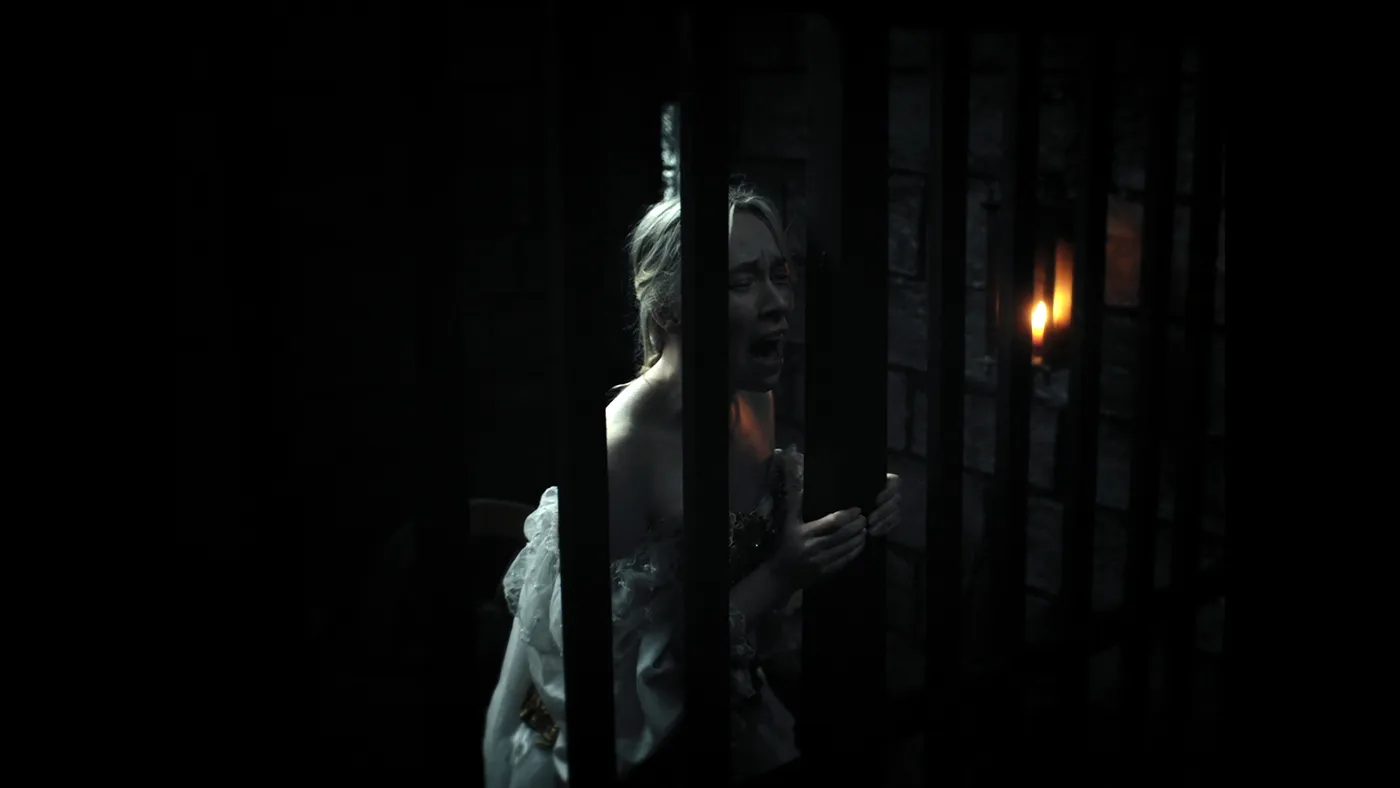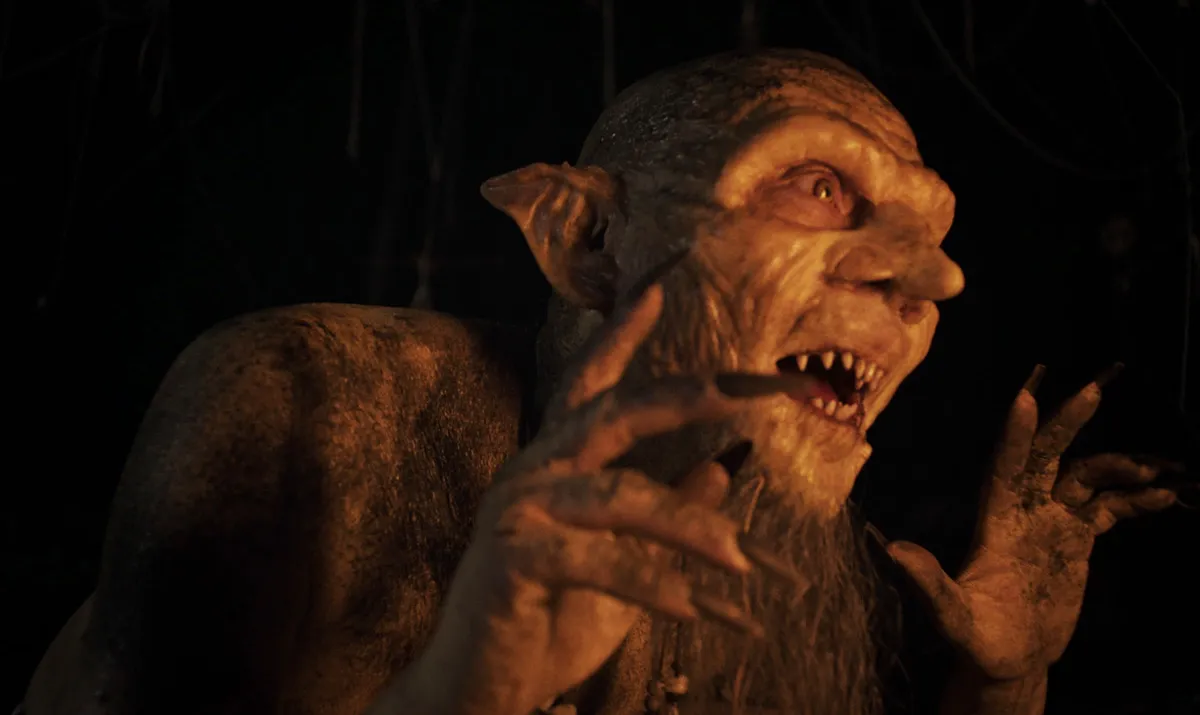The cinematic churn, relentless as a medieval water wheel, gifts us another iteration of a story lodged deep in the collective unconscious: “Rumpelstiltskin.”
This particular celluloid (or, more accurately, digital) offering wraps itself in the grimy trappings of dark fantasy, with aspirations towards horror and perhaps a dash of what might generously be called bleak comedy. Our unfortunate protagonist is Evalina, a miller’s daughter whose life, already a tapestry of rural drudgery and spirited indiscretion, takes a dramatically unfortunate turn.
Her father, in a moment of either spectacular misjudgment or desperate ambition (the two often being indistinguishable in such tales), proclaims her capable of an alchemical absurdity: spinning straw into gold. The local monarch, predictably keen on such a skill, puts this claim to an immediate, life-or-death test. Thus, the stage is set for a familiar descent into perilous bargains and folkloric menace.
The Perilous Architecture of a Bargain
The King’s ultimatum hangs heavy: transmute humble straw or face the executioner. Evalina, understandably perturbed, finds herself incarcerated with little more than agricultural refuse and existential dread.
From this desperate soil springs the titular creature, Rumpelstiltskin, offering his peculiar expertise in exchange for trinkets, then escalating his price with the chilling efficiency of a seasoned (and decidedly supernatural) negotiator. The ultimate wager, as these things invariably go, is her firstborn child.
The narrative does, for the most part, trace the well-worn path of the source material – marriage to the gold-impressed King, the arrival of an heir, and the imp’s unwelcome return to collect. Yet, the film’s temporal stride sometimes falters; Evalina’s gestation, a period ripe for psychological torment, feels curiously abbreviated, a skipped beat in the rhythm of dread.
The use of chapter divisions attempts to impose a certain literary order, though their connection to the actual unfolding drama can feel somewhat arbitrary, like bookmarks dropped carelessly into a well-thumbed, bloodstained book.
Of Imps, Maidens, and Monarchical Malice
Evalina, as rendered by Hannah Baxter-Eve, oscillates between a rather modern-seeming sauciness (she is, we learn, no stranger to pre-marital dalliance and herbal preventatives) and the wide-eyed terror befitting her predicament.
There’s a flicker of defiance, a commendable spark, though her arc from rebellious spirit to strategically-minded mother-queen sometimes feels more like a series of costume changes than a deep internal shift. One almost misses the untamed girl amidst the regal anxieties.
Then there is Rumpelstiltskin himself, Joss Carter capering with a commendable, almost exhausting physicality beneath layers of presumably uncomfortable prosthetics. Is he the giggling, malevolent sprite of a thousand nightmares, or something a touch more complicated?
The performance hints at both a menacing glee and, perhaps, a whisper of his own tortured existence, a pawn in some larger, unseen game. The film teases a new layer to his motives, a deviation that might offer depth but feels somewhat unevenly stitched into his established persona.
The King, meanwhile, is a study in brutish entitlement, his desire for an heir overshadowing any semblance of humanity – a familiar archetype of patriarchal power, rendered with straightforward, if un-nuanced, menace.
These characters, while engaging in moments, occasionally seem to be reading from slightly different scripts, their motivations clear one moment and opaque the next, as if the narrative fabric itself has a few loose threads.
The Aesthetics of Austerity (and Occasional Unease)
Director Andy Edwards approaches this fable with a sensibility that might be termed ‘grimdark-lite,’ aiming for a folk horror chill without quite plunging into its deepest, darkest woods. The atmosphere sought is one of unsettling gloom, yet the film’s tone is a capricious thing, veering between straight-faced medieval drama, creature-feature horror, and moments that almost (but not quite) land as black comedy. Consistency, thy name is not Rumpelstiltskin.
Visually, the production wears its budgetary constraints on its rough-spun sleeve. The cinematography often favors unflatteringly low angles, perhaps an attempt to place us in the imp’s diminutive shoes, though the effect is more often disorienting than immersive.
Sets and costumes evoke a kind of all-purpose medievalism, what one might call “Ye Olde Generic,” sometimes effective in its rudimentary way (Rumpelstiltskin’s design has a certain grotesque charm, and Evalina’s gowns possess a tattered regality), at other times recalling the earnest but underfunded television fantasies of a bygone era.
The world-building feels similarly patched together—a dash of Tudor England here, a hint of Spanish influence there, an Irish King, a mystical advisor from afar—less a coherent secondary world and more a grab-bag of historical-ish aesthetics.
Special effects, particularly the digital kind, are… present. The practical makeup for the imp fares better, a testament to tangible craft. It’s a film that makes you appreciate the ambition, even as you note the seams.
Old Straw, New Spin? (Or Just More Straw?)
This “Rumpelstiltskin” clings rather faithfully to its narrative skeleton, a choice that provides a sturdy frame but limits surprises. The additions – Evalina’s forthright sexuality, a slightly expanded backstory for the imp – are like fresh herbs sprinkled on an ancient stew; they alter the aroma somewhat but don’t fundamentally change the dish.
One wonders if the inherent, bone-deep horror of the original tale – the trading of life, the terror of the unknown, the desperation of inescapable bargains – is fully excavated. Opportunities for genuine dread seem to flit by, like shadows a little too quickly dismissed.
The film gestures towards several thematic avenues: the precariousness of female agency in a world governed by brutish men, the corrupting nature of power (both royal and supernatural), the weight of deals made in desperation.
Yet, these explorations often remain surface-level, ideas introduced but not thoroughly interrogated. The dialogue attempts a kind of earthy realism, occasionally peppered with anachronistic vulgarity (presumably for grit, or perhaps just for kicks), which can sometimes shatter the fragile illusion of its medieval setting.
Ultimately, the purpose of this retelling feels somewhat elusive. Is it a comment on the enduring power of myth, a cautionary tale for a new generation, or simply another turn of the public domain crank? The answer, like the imp’s true name, remains tantalizingly obscure.
Rumpelstiltskin premiered at FrightFest Glasgow on March 8, 2025, and was subsequently released digitally on April 7, 2025, by Miracle Media.
Full Credits
Director: Andy Edwards
Writers: Andy Edwards
Producers and Executive Producers: Andy Edwards, Becca Hirani
Cast: Hannah Baxter-Eve, Joss Carter, Adrian Bouchet, Colin Malone, Chris Mills, Mark Cook, Evyn George, Ayvianna Snow, Jennifer Lim, Annabella Rich, Sarah Jane Duncan
The Review
Rumpelstiltskin
This "Rumpelstiltskin" offers a spirited, if somewhat rough-hewn, journey back into classic folklore. While Joss Carter’s energetic imp and moments of grim atmosphere provide sparks of interest, the film struggles with an inconsistent tone and the visible constraints of its ambition. It’s a curio that entertains in fits and starts, a familiar story spun with earnestness but not quite enough gold to fully dazzle.
PROS
- Joss Carter's lively performance as Rumpelstiltskin.
- Effective creature design for the titular imp.
- Ambitious attempt to give a dark folk horror treatment to a classic tale.
- Some atmospheric moments and visual ideas.
CONS
- Inconsistent and muddled tone.
- Pacing issues, with key moments feeling rushed.
- Production limitations are apparent in visuals and setting.
- Thematic ideas are introduced but not deeply explored.
- Uneven character development for the protagonist.


















































